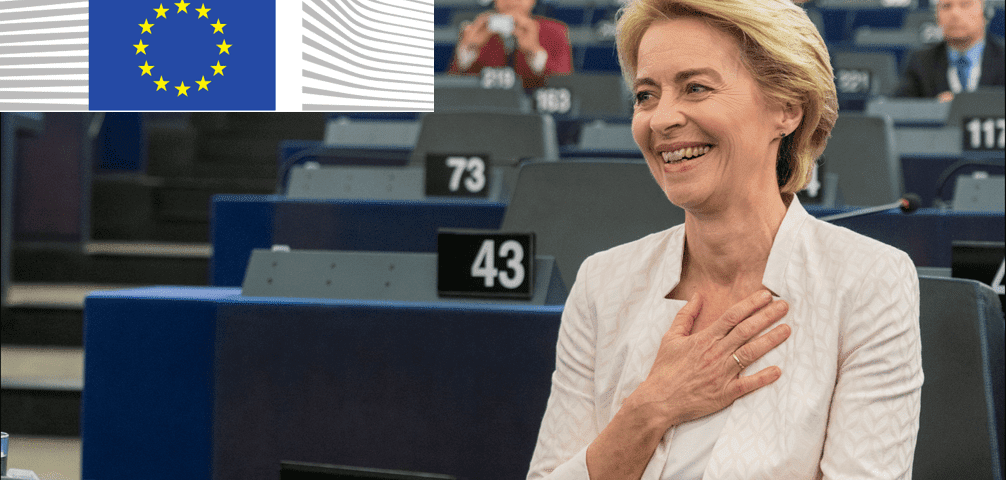Habemus presidentem: Ursula von der Leyen as the new head of the European Commission

On July 16th, the European Parliament in plenary elected Ursula von der Leyen President of the next European Commission and the first woman to hold this position. The ratification was achieved despite a very thin majority with 383 votes in favour, 327 against and 22 abstentions: only nine more votes than the required minimum of 374.
Though the vote was held by secret ballot, it is likely that the three mainstream groups, EPP, S&D and RE, voted predominantly in favour of the Council nominee. She also obtained support from the opposite Eurosceptic camp: just before the vote, it was announced that Pis, the Eurosceptic ruling party in Poland, would vote for her, as well as some MEPs from Italy’s populist 5Star Movement also supported her election.
Conversely, the Greens, a pro-European group, have reportedly voted against, although individual MEPs may have acted otherwise.
Although very narrow, the success of von der Leyen could be explained by the flexibility she has shown in recent days, by taking on board political ideas of the socialist, liberal and green groups in her political agenda. Circulated before her last tour of hearings in front of the European Parliament, the former German defence minister’s agenda lays down a number of “Europe’s ambitions” for the next five years, including a European Green Deal, a stronger democratic Union, supporting small business as well as deepening the Economic and Monetary Union.
In addition, a specific chapter of her “agenda for Europe” outlines her priorities for the Digital Single Market. More precisely, von der Leyen expressed her intention to:
- Propose a new Digital Services Act to upgrade current liability and safety rules for digital platforms, services and products;
- Forward legislation for a coordinated European approach on the human and ethical implications of Artificial Intelligence;
- Develop joint standards for the EU 5G network;
- Achieve technological sovereignty;
- Adopt an EU legislation for the taxation of big tech companies, unless a global agreement is reached by the end of 2020;
- Drive the full digitalisation of the European Commission through new digital methods and diplomacy tools;
- Update the Digital Education Plan to make digital literacy an educational acquis for everyone.
Von der Leyen will further develop her new agenda for Europe this summer in parallel with her efforts to build up the new European Commission.
As a reminder, the Commission President-elect will now send official letters to the member states’ heads of state or government inviting them to propose their candidates for members of the Commission. Hearings of the nominees in Parliament’s competent committees are scheduled to take place from September 30th to October 8th. The full college of Commissioners is expected to be approved by the European Parliament in its October 21st-24th session.

